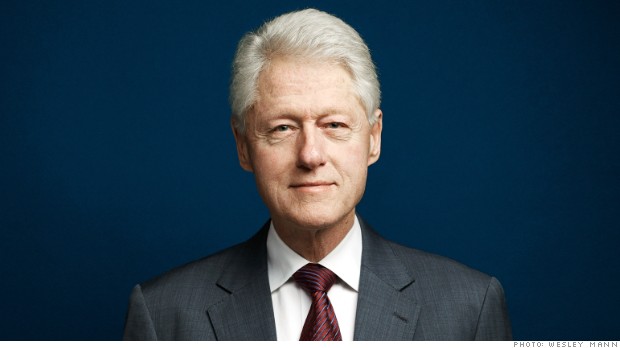 (Fortune) The former President distills his wisdom for Fortune.
(Fortune) The former President distills his wisdom for Fortune. What does leadership mean to you?
Leadership means bringing people together in pursuit of a common cause, developing a plan to achieve it, and staying with it until the goal is achieved. If the leader holds a public or private position with other defined responsibilities, leadership also requires the ability to carry out those tasks and to respond to unforeseen problems and opportunities when they arise. It is helpful to be able to clearly articulate a vision of where you want to go, develop a realistic strategy to get there, and attract talented, committed people with a wide variety of knowledge, perspectives, and skills to do what needs to be done. In the modern world, I believe lasting positive results are more likely to occur when leaders practice inclusion and cooperation rather than authoritarian unilateralism. Even those who lead the way don't have all the answers.
MORE: World's Greatest Leaders
What attributes do leaders share?
Steadfastness in pursuit of a goal, flexibility in determining how best to achieve it. The courage to make a hard decision, and the confidence to stay with it and explain it. The common sense to listen to others and involve them. And the strength to admit it when you make a mistake or when a given policy is not working. You have to be able to trust others, and trust your instincts as well as your intellect. Finally, if the objective is to get something done on a matter that is both important and controversial, you have to be able to compromise as well as know the lines you can't cross.
How did you learn to be a leader?
I learned when I was very young to respect the human dignity of everyone I met, to observe them closely and listen to them carefully. From the adults in my extended family I learned that everybody has a story but not everyone can tell it. I learned that most of life's greatest wounds are self-inflicted, that trying and failing is far better than not trying at all, that everyone makes mistakes but most people are basically good. As a boy grow! ing up in the civil rights years, then during Vietnam, I came to see politics as a way to help other people make their own life stories better. All along the way I learned a lot from other leaders, especially those who befriended me and shared their own experiences. Yitzhak Rabin reminded me that you don't make peace with your friends. Nelson Mandela told me and showed me that you can't be a great leader if you're driven by resentment and hatred, no matter how justified those feelings are. To be free to lead, you have to let a lot of things go. I'm grateful to them and everyone else who taught me to look for the dreams and hurts, hopes and fears, in the eyes of everyone I met.
MORE: Gen. George W. Casey on leading in a 'VUCA' world
Who are the great leaders in your mind?
There are too many to mention so I'll stick with a few. Nelson Mandela and Yitzhak Rabin were great for the reasons I mentioned and many more. Helmut Kohl oversaw the reunification of Germany, the European Union, and the creation of the eurozone.
Bill and Melinda Gates have built their amazing foundation, which is saving and lifting countless lives, driven by the principle that every life has equal value. They've selflessly given their money, time, and know-how to help solve global health and development problems. Muhammad Yunus and Fazle Abed have empowered huge numbers of poor people to live more productive lives.
Aung San Suu Kyi's dignified determination helped open her country to the world and inspired women and girls across the world.
This story is from the April 7, 2014 issue of Fortune. ![]()
No comments:
Post a Comment